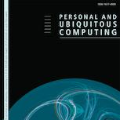We examine machine learning models in a setup where individuals have the choice to share optional personal information with a decision-making system, as seen in modern insurance pricing models. Some users consent to their data being used whereas others object and keep their data undisclosed. In this work, we show that the decision not to share data can be considered as information in itself that should be protected to respect users' privacy. This observation raises the overlooked problem of how to ensure that users who protect their personal data do not suffer any disadvantages as a result. To address this problem, we formalize protection requirements for models which only use the information for which active user consent was obtained. This excludes implicit information contained in the decision to share data or not. We offer the first solution to this problem by proposing the notion of Protected User Consent (PUC), which we prove to be loss-optimal under our protection requirement. To learn PUC-compliant models, we devise a model-agnostic data augmentation strategy with finite sample convergence guarantees. Finally, we analyze the implications of PUC on a variety of challenging real-world datasets, tasks, and models.
翻译:暂无翻译




